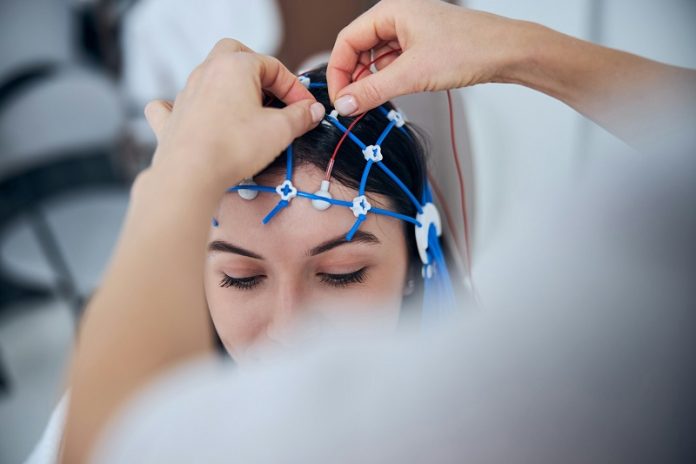
One hundred years ago, scientists first recorded the electrical activity of the human brain, a breakthrough that paved the way for a deeper understanding of how our minds work.
This technique, known as electroencephalography (EEG), has since become a crucial tool in diagnosing brain disorders, most notably epilepsy.
Today, as EEG marks its centennial, experts are reflecting on its impact and exploring what the future holds for this remarkable technology.
EEG works by measuring the brain’s electrical activity using electrodes placed on the scalp. Over the past century, it has provided invaluable insights into brain function and has become a standard method in neuroscience research.
To celebrate this milestone, researchers from the University of Leeds conducted a survey involving over 500 experts from around the world, who collectively have nearly 7,000 years of experience with EEG.
The findings, published in Nature Human Behaviour, reveal both excitement and caution about the future of EEG.
One of the most fascinating predictions is that within a generation, EEG technology could become as common as smartphones.
Researchers believe that portable, personal EEG devices could soon be available to everyone, offering insights into our brain activity in real time. These devices could be used for a variety of purposes, from improving cognitive performance to detecting early signs of learning disabilities.
One practical application might be for drivers or pilots, where EEG could help monitor alertness and prevent accidents by waking them up if they start to fall asleep.
However, some predictions are more futuristic and may take longer to realize. For instance, while some experts believe that using EEG to read dreams or access long-term memories might be possible in 50 years, others are more skeptical, viewing it as more science fiction than reality.
What makes EEG particularly promising for the future is its simplicity and affordability. The basic setup—electrodes and an amplifier—hasn’t changed much since its invention, but advancements in digital analysis have dramatically increased what we can do with the data it provides.
As EEG technology becomes cheaper and more portable, it could become more accessible to people in low-income countries, allowing for widespread use in areas where more complex imaging technologies like MRI are not feasible.
Despite the excitement, experts also voiced concerns about the ethical implications of future EEG applications.
There is worry that as the technology becomes more widely used, it could be exploited in ways that infringe on personal privacy, such as by tracking cognitive functions or emotions without consent.
These concerns highlight the need for strict ethical standards as EEG technology continues to evolve.
The survey also identified the priorities of the EEG research community.
One major goal is to use EEG to improve global brain health by making it accessible to more diverse populations. Currently, most brain research is based on data from a small, specific segment of the global population, which limits the ability to generalize findings.
By expanding the reach of EEG, researchers hope to build a more inclusive and representative understanding of brain function.
The potential of EEG, combined with advancements in artificial intelligence and virtual reality, could revolutionize how we interact with technology and understand our own minds. However, to achieve this, the neuroscience community must commit to ethical, inclusive, and sustainable practices.
As EEG enters its second century, it stands on the brink of potentially transformative developments that could change how we diagnose, treat, and understand the brain—bringing these benefits to people all around the world.
If you care about brain health ,please read studies about Vitamin B9 deficiency linked to higher dementia risk, and cranberries could help boost memory.
For more information about brain health, please see recent studies about heartburn drugs that could increase risk of dementia, and results showing this MIND diet may protect your cognitive function, prevent dementia.



